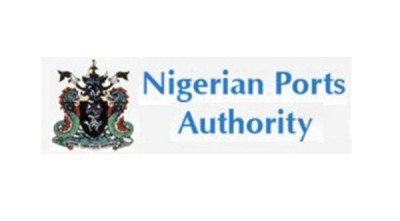With five days to the closing date for the presentation of candidates in Rwanda's presidential election, only two contenders have so far met the official requirements. South Africa's central bank is at war with the country's ombudsman over her plan to change the Reserve Bank's constitutional obligations. And what's wrong with Nigeria's power sector?
It looks as if Rwanda's August presidential election will be a two-horse race.
According to the main story in regional paper the East African, the National Electoral Commission in Kigali yesterday said the incumbent and ruling RPF candidate Paul Kagame and Frank Habineza of the opposition Democratic Green Party of Rwanda were the only two candidates who had fulfilled the necessary requirements.
The National Electoral Commission did, however, stress that the list is provisional and that rejected independent candidates still have five days to meet the qualifying requirements.
Among the key requirements for each contender are 600 signatures of registered voters with at least 12 from each of Rwanda’s 30 districts.
The four independent candidates either have too few signatures or their supporters come from too few districts. One did not present any list of signatures when he submitted his bid.
The final list of candidates will be confirmed on 7 July.
South Africa's central bank takes on the Public Protector
South Africa's central bank is at war with the country's ombudsman, according to the main story on the front page of the Johannesburg-based Mail & Guardian newspaper.
The report says the South African Reserve Bank has torn into Public Protector Busisiwe Mkhwebane, describing her attempt to rewrite the constitution as “ill-informed and reckless” and a threat to the poor.
Earlier this month Mkhwebane instructed parliament to remove the Reserve Bank’s constitutional mandate to keep inflation in check.
A suggestion which the central bank says threatens to undermine the critical contribution that the bank makes to the stability of the South African financial system, which is central to sustainable growth and development, job creation, the reduction of inequality and poverty alleviation.
The bank also says that Mkhwebane’s attempt to make the Reserve Bank responsible for economic development and transformation is sorely misguided. She is accused of trying to transform the Reserve Bank into a socio-economic well-being organisation.
Mkhwebane has since claimed that she was merely making a suggestion that Parliament start a process that could, eventually, result in a change to the South African Constitution.
South Sudan deports three US nationals
The main story in the Sudan Tribune looks at the decision by the South Sudanese government earlier this week to deport three American nationals.
The three were sent back to Kenya because they did not have the necessary documents for a legal visit.
The three Americans have been identified as former US Army or Marine soldiers, at least two of them suspected of desertion, one is wanted for attempted murder, and two fought in the Ukrainian civil war.
The three are currently in detention in Kenya.
Nigeria's power system leaking megawatts, and megabucks
The Guardian in Nigeria says the country's power sector is losing billions of niara because of distribution problems.
Last week alone, according to the report, against a background of shortfalls in power supply, the sector experienced cumulative revenue losses amounting to 20 million euros.
The gas and electricity networks have been disrupted by recent heavy rain in some areas, resulting in what the Guardian calls an "epileptic" supply to homes and businesses.
France puts up one billion euros to boost investment in Nigeria
Punch newspaper meanwhile reports that the French government has set aside about one billion euros to be invested in Nigeria’s oil and gas industry and that Nigeria remains its first trading partner in Africa.
The money will be used to encourage French investors to take an interest in the Nigeria oil and gas sector, the statement adding that the French government is also cooperating with the federal government in the fight against the Boko Haram insurgency.
The same statement from the French ambassador to Nigeria, Denys Gauer, commended the federal government for stemming the insecurity situation in the Niger Delta, noting that Total, the French multinational oil and gas company, had significant investment equity in the Nigerian-owned Liquefied Natural Gas Limited and the Egina Project.
Gauer, however, expressed concern that some other French companies were troubled by the unclear fiscal policies in the oil and gas sector.
Comments by IntenseDebate
Posting anonymously.
African press review 28 June 2017
News|

 Logging you in...
Logging you in...












